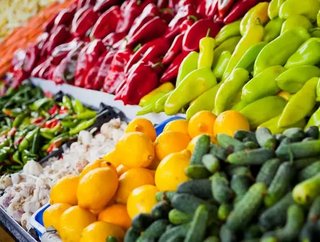Tyson Foods: The U.S. food supply chain is at breaking point

As the COVID-19 outbreak continues to force the closures of some of not just the country’s, but the world’s largest slaughterhouses and production plants, the U.S. food supply chain is being pushed right to its limits.
Further down the supply chain, grocery stores are seeing shortages in supply, leaving customers with reduced options, and in some cases, no options whatsoever. At the very other end, the tens of thousands of animals that are processed daily have nowhere to go. This is leaving farmers with very difficult decisions to make, with the culling of millions of animals becoming increasingly likely. The U.S. government is in the process of setting up a centre that will assist farmers with “depopulation and disposal methods.”
"The food supply chain is breaking," said John Tyson, chairman of Tyson Foods Inc., the biggest meat company in the United States. "Millions of pounds of meat will disappear. In addition to meat shortages, this is a serious food waste issue. Farmers across the nation simply will not have anywhere to sell their livestock to be processed, when they could have fed the nation. Millions of animals – chickens, pigs and cattle – will be depopulated."
Almost a third of pork capacity in the country is down, with JBS closing another beef production facility on Sunday, and Brazil, the largest shipper of chicken and beef in the world, seeing its first poultry plant closed also. A poultry plant has also been closed in Canada, which highlights the real issue. Canada, the U.S. and Brazil account for approximately 65% of the world’s meat trade.
The U.S. Department of Agriculture predicts that 2020 beef prices will rise by 2%, poultry will reach 1.5% and pork could increase by as much as 3%. In a bid to stabilise food prices, the agency is purchasing $3bn in fresh produce, dairy and meat from farmers.
SEE ALSO:
A number of companies, Tyson Foods included, faced criticism after it was revealed that they had failed to provide sufficient protective gear and measures to employees. Employees were only required to wear company-supplied masks since mid-April. At least 13 packing and food processing workers have died from the coronavirus according to the United Foods and Commercial Workers International Unions.
Tyson finished by saying: “We have a responsibility to feed our country. It is as essential as healthcare. This is a challenge that should not be ignored. Our plants must remain operational so that we can supply food to our families in America.”
For more information on procurement, supply chain and logistics topics - please take a look at the latest edition of Supply Chain Digital magazine.






